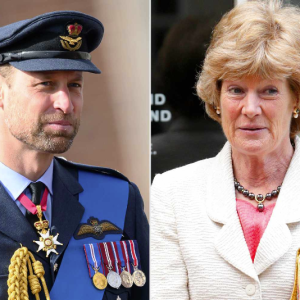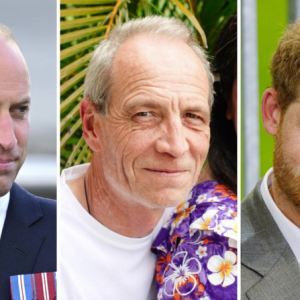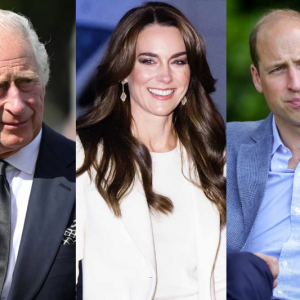After 40 minutes of throwing lightning bolts, dazzling and baffling Boston all over the floor for the fifth time in six games, Stephen Curry hung behind in the backcourt.
He let longtime running buddy Klay Thompson ferry the ball across the timeline, waiting as the clock ticked down toward history, champagne, and cigar smoke; toward a fourth rendezvous with the Larry O’Brien Championship Trophy, and a long-overdue introductory meeting with the Bill Russell NBA Finals MVP Trophy.
In those closing seconds of Game 6, a game he had owned, Curry—the overflowing font of joy that Steve Kerr long ago tapped to serve as the wellspring of the Warriors’ dynastic run, one still evidently very much in progress—did something surprising. He wept.
Curry hugged his father, Dell, along the baseline. He held his head with both hands, as if in disbelief that it could all be happening again. He crouched and eventually sat down on the hardwood, laid low by the moment—a 103-90 victory over the Celtics, a 4-2 series win to earn the fourth NBA championship of his career—and overwhelmed by the realization that, just over 1,100 days after Golden State’s golden age seemed to end, he and the franchise could let go of “the three years of baggage we carried coming out of that Game 6 in 2019.” Could still shine as bright as ever; could still lord over the sport.

“These last two months of the playoffs, these last three years, this last 48 hours—every bit of it has been an emotional roller coaster on and off the floor,” Curry said after the game. “You’re carrying all of that on a daily basis to try to realize a dream and a goal, like we did tonight. And you get goosebumps just thinking about, you know, all those snapshots and episodes that we went through to get back here, individually, collectively. And that’s why I said I think this championship hits different. That’s why I have so many emotions, and still will, just because of what it took to get back here.”
It took Thompson fighting back from two of the most devastating injuries a basketball player can suffer, toiling through two missed seasons to return to Curry’s side for the season’s toughest moments. It took Draymond Green battling age, apathy, a back injury, and a swarming, athletic Celtics team to rediscover the two-way force that makes him not only the guy who coined the phrase “16-game player,” but also one of its grand exemplars. It took that proud and decorated core persevering through a 15-win season that saw Golden State plummet from first in the West to worst in the league, and a mild bounce-back season that still ended in the play-in tournament.
It took the rehabilitation of Andrew Wiggins, miscast as a franchise savior but perfectly suited to a super-3-and-D role. It took Jordan Poole going from G League curio to Most Improved Player candidate, and from a Finals debutant spooked by Boston’s length to an operator poised enough to pour in 43 points in 53 minutes in games 4 through 6. It took the nomadic Gary Payton II finding a home—not as a video coordinator, granted, but still a pretty good gig as the kind of hard-charging, havoc-wreaking ball hawk who could break his elbow and still come back to help tilt Finals games a month later. It took Kevon Looney’s relentless dirty work—no. 1 during the postseason in offensive rebounds, fourth in contested shots, fifth in screen assists—to extend or stall possessions.
It took all of that, and the Warriors got every bit of it. They got it because of Curry—because of who he is, because of what he can do between those white lines, because of the sui generis way he does it, and because of what the unique amalgam of those factors stirs in others.
“It’s an honor to be able to play with him and call him my teammate,” Looney said after the game.
“He left no doubt, left no doubt,” Green said. “He carried us.”
“He’s one of the greatest ever, and we all followed in his lead,” Thompson said after the game.
“Steph, I think he solidified himself today—not even today, just [in] his career—as the best point guard of all time,” Andre Iguodala said.
Regardless of your view on the all-time rankings, this much is indisputable: Curry is the prime mover, the stylistic and cultural centerpiece, of a franchise that has now won four NBA championships in eight years. He’s the reason—the rising tide that lifts all boats, the warming sun that allows new possibilities to grow, the once-in-a-lifetime comet who illuminates everything else as he streaks across the sky.
Without Steph, the Warriors basically couldn’t score against the Celtics’ smothering defense in these Finals. During Curry’s brief breathers at the start of the second and fourth quarters—stretches when Kerr hoped that Thompson, Poole, Green, and whoever else he had in the cupboard could scrounge together a few minutes’ worth of buckets—the Dubs’ offense coughed and sputtered to the tune of a desolate 88.6 points per 100 possessions, miles below what the league’s worst offenses generate.
What Kerr’s adjustment lacked in complexity, it made up for with consequence: Curry just left the court less—after averaging only 33.6 minutes per game through the first three rounds of the postseason, he logged 38.7 over the final four games of the Finals—and did even more.
Curry turned in a 43-point shot-making masterpiece to win Game 4 in Boston, even the series, and snare back home-court advantage. In his one “off night” in this series—Game 5, when he missed all nine of his 3-point attempts and totaled just 16 points—he still racked up eight assists and turned the ball over just once in a 10-point win in which Golden State outscored Boston by 15 points with him on the floor. And on Thursday, with the championship in sight, he sloughed off Game 5’s rocky shooting and resumed scorching, knocking down six of his 11 3-point tries en route to 34 points, seven rebounds, seven assists, two steals, and one block in 40 incredible minutes.





